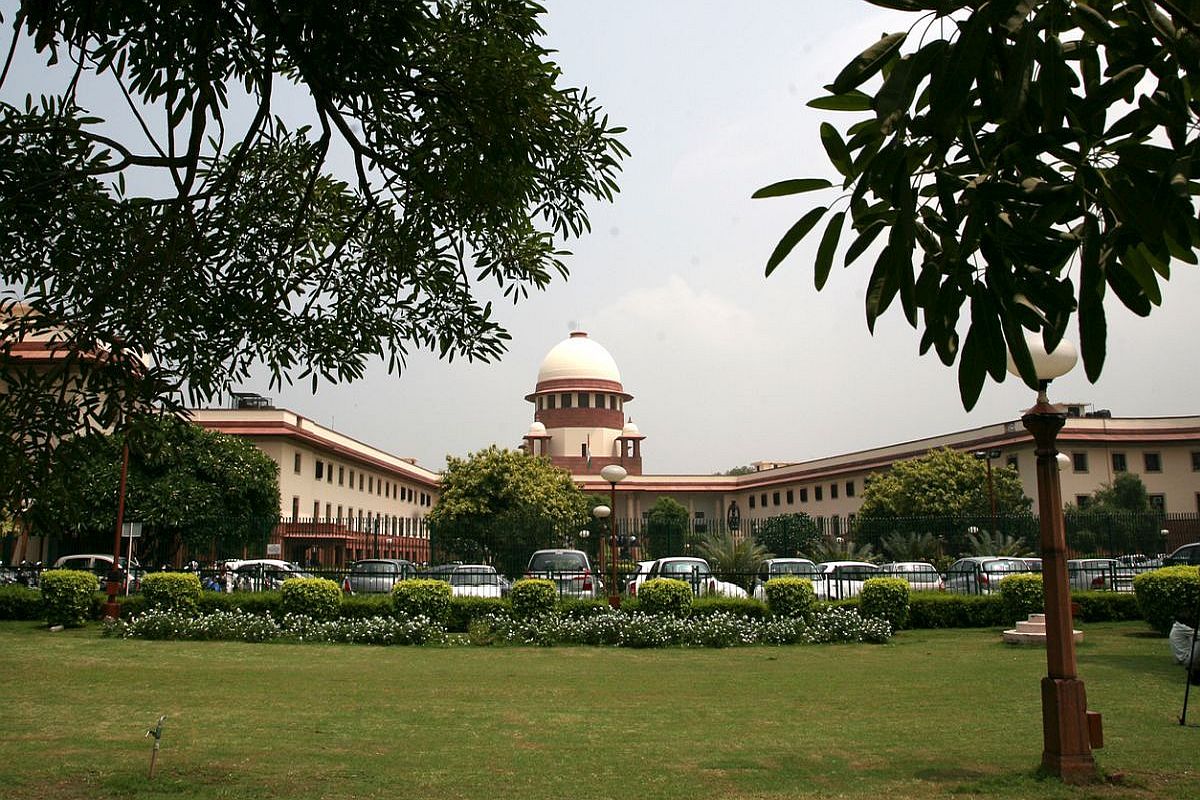India’s Got Latent: SC issues notice on YouTuber Ashish Chanchlani’s plea against FIRs
SC issues notice on YouTuber Ashish Chanchlani’s plea to quash or transfer FIR in India’s Got Latent case; tagged with Ranveer Allahabadia’s petition.
The CJI suggested the meeting between opposing sides to fine-tune the issues already suggested by the Sabarimala bench while giving them three weeks to come up with issues to be considered.

Supreme Court (Photo: Getty Images)
The Supreme Court on Monday said it will only hear the questions referred in the review order passed by it on November 14 in the Sabarimala temple case.
A nine-judge bench headed by Chief Justice SA Bobde said that it was not considering review pleas in the Sabarimala case.
Advertisement
“We are not hearing review pleas of Sabarimala case. We are considering issues referred to by a 5-judge bench earlier,” the bench said.
Advertisement
There are more than 50 review petitions, which had challenged the judgement of the Supreme Court allowing the entry of women of all ages in the Sabarimala temple in Kerala. The petitions are pending before the Supreme Court for final disposal.
As the top court commenced hearing on issues related to discrimination against women in various religions and at religious places, it asked the lawyers from all sides in the Sabarimala, Muslim women, Parsi and Dawoodi Bohra cases to sit together and decide on what issues can be framed.
Chief Justice SA Bobde has given the lawyers three weeks to come up with issues to be considered.
Secretary-General Tushar Mehta will convene the Council of counsels on January 17.
Issue of polygamy/nikah halala will not be heard, the Supreme Court said adding that the decision on whether to allow intervention will be taken later.
The CJI has suggested the meeting between opposing sides to fine-tune the issues already suggested by the Sabarimala bench.
An apex court bench, headed by then Chief Justice Ranjan Gogoi, had on November 14, 2019, asked a larger bench to re-examine various religious issues, including the entry of women into the Sabarimala Temple, mosques and Parsi places of worship and the practice of female genital mutilation in the Dawoodi Bohra community.
A five-judge Bench of the Supreme Court, by a majority of 3:2 referred the review petitions to a larger 7-judge Constitution bench.
Referring the review pleas to a larger bench, CJI Ranjan Gogoi observed that “the entry of women into places of worship is not limited to this temple, but is also involved in the entry of women into mosques and Parsi temples.”
While referring to restrictions on the entry of women into mosques, CJI Gogoi said that the Supreme Court should evolve a common policy on religious places like Sabarimala. “Restrictions on women in religious places is not restricted to Sabarimala alone, prevalent in other religions also,” he said.
On September 28, 2018, a five-judge Constitution bench, headed by then chief justice Dipak Misra, lifted the ban on the entry of women of menstrual age into the Sabarimala temple sparking widespread protests by Hindu groups across Kerala.
The five-judge Constitution Bench had junked the age-old tradition of the Lord Ayyappa temple by a majority verdict of 4:1.
The temple witnessed massive protests by various devotee groups and Hindu outfits in Kerala against the Pinarayi Vijayan government’s decision to implement the apex court order without going for any review petition.
Advertisement